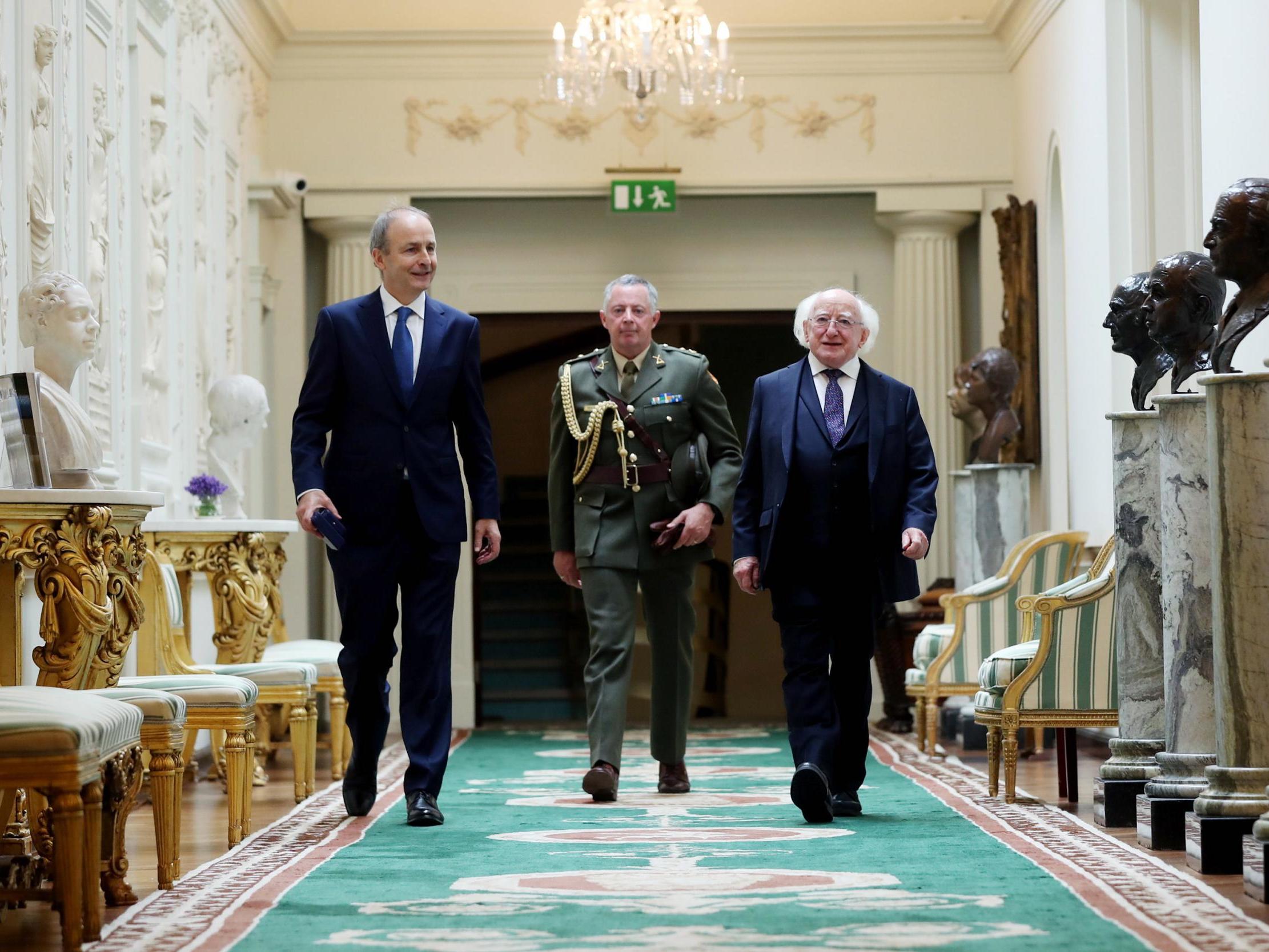'Missed opportunity': Ireland’s new government accused of failing on ‘shared island’ commitment by Northern voices
None of Taoiseach's new senators are from Northern Ireland

Your support helps us to tell the story
From reproductive rights to climate change to Big Tech, The Independent is on the ground when the story is developing. Whether it's investigating the financials of Elon Musk's pro-Trump PAC or producing our latest documentary, 'The A Word', which shines a light on the American women fighting for reproductive rights, we know how important it is to parse out the facts from the messaging.
At such a critical moment in US history, we need reporters on the ground. Your donation allows us to keep sending journalists to speak to both sides of the story.
The Independent is trusted by Americans across the entire political spectrum. And unlike many other quality news outlets, we choose not to lock Americans out of our reporting and analysis with paywalls. We believe quality journalism should be available to everyone, paid for by those who can afford it.
Your support makes all the difference.The new coalition government in Ireland is facing criticism for its failure to bring in voices from Northern Ireland, despite a commitment towards building a ‘shared island’.
After being elected Taoiseach on Saturday, Micheal Martin had the opportunity to nominate 11 personal choices to the Seanad – Ireland’s upper house. But despite expectations, no one from Northern Ireland made the cut.
Whilst there is no obligation for such representation, the apparent oversight is particularly jarring because of the new coalition’s promise to improve cross-border integration.
The programme for government agreed by Fianna Fail, Fine Gael and the Greens outlined plans for a new unit within the office of the Taoiseach “to work towards a consensus on a shared island,” in accordance with the Good Friday Agreement.
The move can be read as a response to growing demand across the island of Ireland for a discussion about the constitutional future of Northern Ireland, particularly in the wake of Brexit – which will leave the region more closely aligned to Dublin and the rest of the EU on trade. The coronavirus pandemic has also shown the importance of all-island co-operation on such matters.
The ‘shared island’ move also comes after Sinn Fein pledged to create a junior minister for Irish unity during an election in which that party made significant gains. While Mary Lou McDonald has called for a referendum on reunification within the next few years, an office planning for closer integration is much more in keeping with the ‘slow and steady’ approach to unity favoured by Fianna Fail and Fine Gael.
While the Taoiseach’s appointment of new senators offered an early chance to begin cross-border outreach, critics have expressed disappointment at his failure to choose anyone from Northern Ireland – nationalist or unionist.
Emma DeSouza, a Derry woman who has led a legal battle for the EU rights of citizens in Northern Ireland, had been among those considered for a post.
She has expressed her disappointment on Twitter, saying, “the row-back on a Northern nomination immediately undercuts the concept of a shared island and will reignite fears that we in the North will be left behind, again.”
Northern Ireland will have representation through elected Sinn Fein figures Elisha McCallion and Niall O’Donnghaile.
Mr O’Donnghaile said that the new Taoiseach’s appointments were a “missed opportunity and perhaps an insight into the credibility of the Gov’s “shared island” proposals that no one from the unionist tradition was nominated to the #Seanad.”
He added, “I may have an entirely different view but I believe their voices are necessary & important.”
In 2018, Leo Varadkar was praised for appointing Armagh farmer and politician Ian Marshall to the Seanad – the first unionist to be represented there since the 1930s – but Marshall is now out, and no one from the unionist community has been selected to fill that spot.
Jane Morrice is a unionist who was an architect of the Good Friday Agreement as part of the Women's Coalition, and later became Deputy Speaker of the Northern Ireland Assembly. She has told The Independent that she contacted leaders in the Republic of Ireland offering herself to represent the North in the Seanad.
"I was hoping for a tap on the shoulder," says Morrice, "but I failed to get any substantive replies."
"Given the unique moment in politics on the island, particularly with the emerging conversations on the Republic's relationship with the North, an opportunity has been missed to put into practice the Shared Island commitment."
Instead, the 11 people chosen to join the new Seanad by the Taoiseach are largely failed Fianna Fail and Fine Gael candidates from February’s general election. However, the majority of choices were women, and the inclusion of activist Eileen Flynn – the first women from a traveller background ever to take such a seat – was roundly praised.
“This is a historic day for Traveller women, for Travellers and Irish society,” said the Women’s Council of Ireland. “You will be an excellent voice for women’s rights and social justice.”
The discussion around this issue in the past 24 hours is an indication that whatever the new Dublin government has planned for the ‘shared island’ element of this administration, it will be scrutinised carefully not just by Sinn Fein in opposition – but by nationalists and supporters of island-wide integration on both sides of the border.
Join our commenting forum
Join thought-provoking conversations, follow other Independent readers and see their replies
Comments